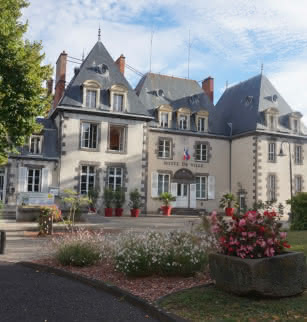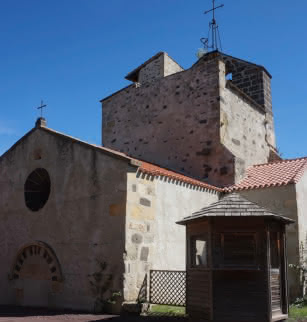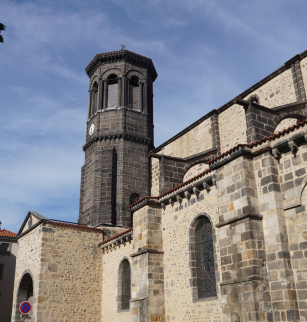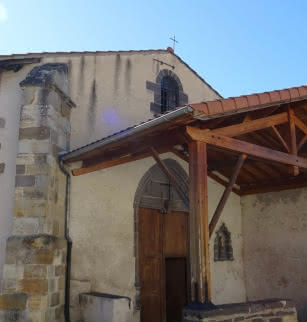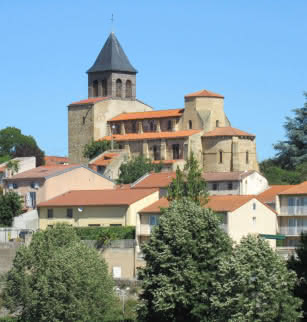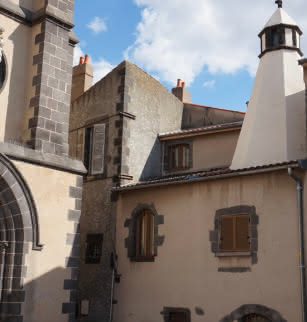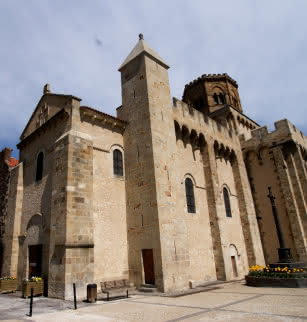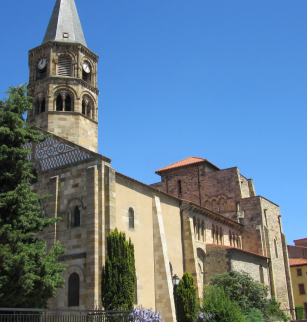Saint-Saturnin Church

Église Saint-Saturnin de Romagnat dates back to the 12th century. Damaged during the French Revolution, it was renovated and modified in the 19th century.
Located within the walls of the former village fort, Église Saint-Saturnin was a stage on the path to Saint-Jacques-de-Compostelle in the Middle Ages. In the 12th century it featured a central nave and the sacristy. In the 13th and 14th centuries, the church was extended by adding an aisle on the north side, then on the south side in the 18th century. Part of the belfry was built in the 14th century. On the inside, some keystones are decorated with a coat of arms, the head of a bishop and arch corbels of faces traditionally identified with those of the lords of Montrognon and their wives.
In the 19th century, after the French Revolution and the pillaging, the parishioners and the municipality joined forces to repair the church. The architect Hugues Imbert (1807-1876) designed the church choir, an example of neo-classical architecture. An architect of the Clermont-Ferrand city hospices, he is also responsible for the chapel of the general hospital, Église Saint-Eutrope in Clermont-Ferrand and the façade on Église Saint-Martin in Ceyrat. The church was inaugurated in 1835. The sacristy was then converted into a chapel dedicated to the Virgin Mary. The church’s current slate roof is not in line with local tradition, which favours red roof tiles. The current belfry was raised in 1893 and houses the bell installed in 1921.
The municipality of Romagnat has two other churches: Église Saint-Bonnet at Opme (listed as a historic monument) and Église Saint-Avit at Saulzet-le-Chaud.
Prices
- Free access.






